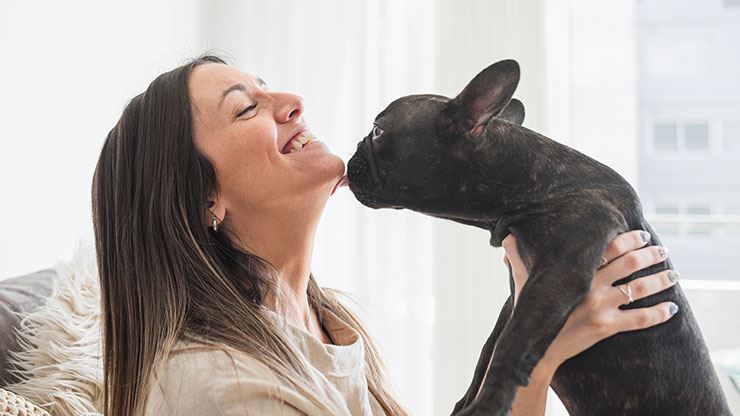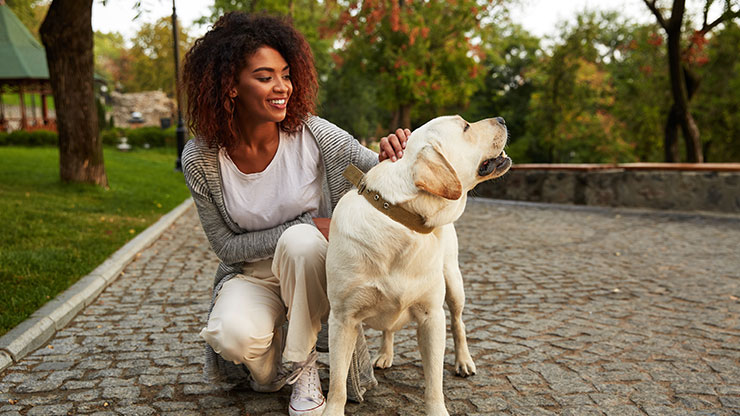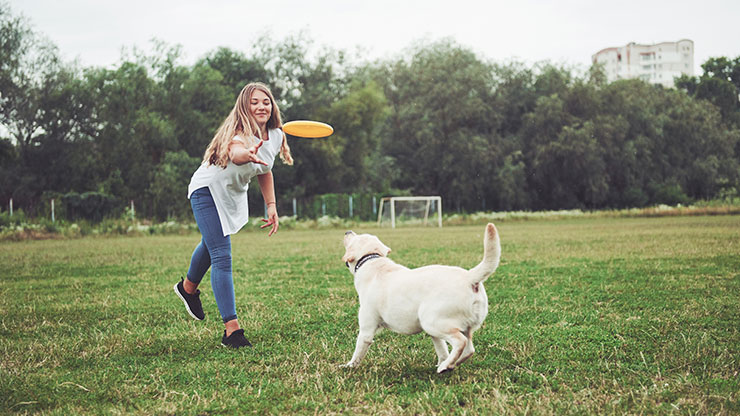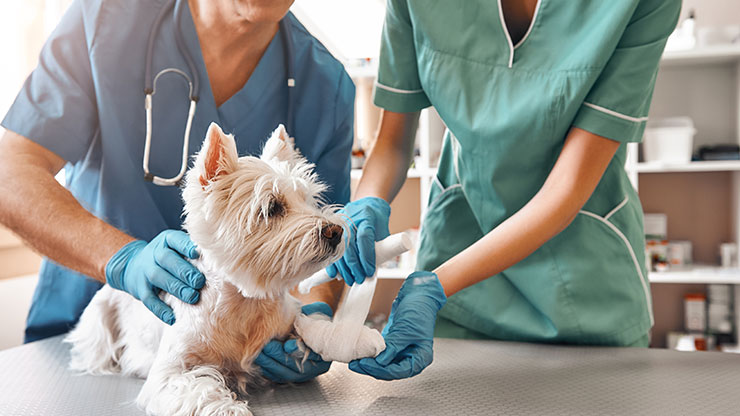
The Psychology Behind Your Relationship with Your Dog: How It Works and How to Enhance It
Furry friends are more than just pets—they're cherished family members. Have you ever wondered what lies beneath the surface of your bond with your four-legged companions? Today, we're diving into the fascinating world of pet psychology to understand how our relationships with our pets work and, most importantly, how we can enhance them. So, grab your favorite cuddle buddy, and let's get started!
Connection
First things first, let's talk about the power of connection. Our bond with our pets goes beyond the cute antics and wet-nose kisses. It taps into something deep within us, triggering a complex mix of emotions and psychological processes. One of the key factors behind this bond is the concept of attachment. Attachment is a fundamental aspect of human psychology, typically associated with our bonds with other humans. However, research has shown that we can develop similar attachment styles with our dogs. This means our relationships with our furry pals can tap into the same emotional needs as our relationships with people.
When we bring a pet into our lives, we provide them with love, care, and attention, and they, in turn, provide us with companionship, support, and much love. This reciprocal relationship forms the foundation of our bond with our pets. We rely on them for emotional support, and they rely on us for their basic needs and affection. Research published in the journal "Science" has shown that gazing into our pet's eyes triggers the release of oxytocin in both humans and animals. Often referred to as the "love hormone" or "bonding hormone," oxytocin is crucial in strengthening social connections and promoting positive emotions. This mutual gaze helps create a deep attachment between us and our furry companions.
Pets have an incredible ability to provide emotional support and help us cope with stress. The simple act of stroking our dogs has been found to reduce cortisol levels, a hormone associated with stress, as demonstrated in a study by the International Journal of Environmental Research and Public Health. Moreover, the presence of pets has been linked to reductions in heart rate and blood pressure, promoting a sense of calm and relaxation. A study conducted by the National Institutes of Health (NIH) found that dog ownership was associated with a decreased risk of cardiovascular disease, adding to the evidence of the positive impact of pets on our well-being.

Pets as Social Facilitators
Our furry friends can also play a significant role in enhancing our social lives. The presence of pets can act as a social facilitator, making it easier for us to connect with other people. For example, we often encounter other dog owners when walking a dog, leading to spontaneous conversations and potentially new friendships. A study published in the journal "PLOS ONE" found that dog owners were more likely to interact socially with people in their neighborhoods than non-dog owners. This highlights the role of pets in breaking down social barriers and fostering a sense of community.
Pets and Mental Health
The benefits of the human-animal bond extend to mental health as well. Pets can provide companionship and a sense of purpose, particularly for individuals experiencing feelings of loneliness or depression. The National Alliance on Mental Illness (NAMI) recognizes the role of pets in offering emotional support and reducing feelings of isolation. In some cases, trained therapy animals, such as therapy dogs, have been shown to impact individuals with various mental health conditions positively. These animals assist in reducing anxiety and increasing feelings of comfort and security, according to research published in the "Journal of Evidence-Informed Social Work."

Enhancing Your Relationship with Your Pet
Now that we understand the science behind our bond with our pets, how can we enhance this extraordinary relationship? Here are some tips backed by research and experts in pet psychology:
Training and Mental Stimulation: Engaging your pet in regular training sessions and providing mental stimulation through interactive toys or puzzles can improve their cognitive abilities and enhance your bond.
Building Trust: Creating a sense of trust is essential in any relationship, including the one with your pet. Be patient, consistent, and reliable in your interactions.
Quality Time: Like any relationship, spending quality time with your pet is crucial. Engage in activities you and your furry friend enjoy, such as playtime, walks, or snuggling up on the couch. These shared experiences strengthen the connection between you and create lasting memories.
Communication: Believe it or not, our pets are excellent at picking up on our cues and emotions. Take the time to communicate with your dog through verbal cues, body language, and positive reinforcement. This helps them understand your expectations and strengthens the trust and understanding between you. Creating a sense of trust is essential in any relationship, including the one with your pet. As the Journal of Veterinary Behavior outlines, be patient, consistent, and reliable in your interactions.
Understanding Body Language: Pay close attention to your pet's body language and vocalizations to better understand their needs and emotions. Numerous resources, such as the book "On Talking Terms with Dogs: Calming Signals" by Turid Rugaas, can help you decipher your dog's non-verbal cues.
Positive Reinforcement: Positive reinforcement techniques, such as rewards and praise, are highly effective in training and building a strong bond with your pet. This approach has been widely studied and recommended by animal behaviorists, such as those from the Associate of Pet Dog Trainers. "Positive reinforcement should be the first line of teaching, training, and behavior change program considered and should be applied consistently. Positive reinforcement is associated with learners' lowest incidence of aggression, attention seeking, avoidance, and fear."
Understanding Their Needs: Each pet is unique, with its personality, preferences, and needs. Take the time to understand your pet's quirks and cater to their specific requirements. Whether finding the perfect scratching spot or discovering their favorite toy, meeting their needs helps them feel loved and valued.

Health and Wellness: Taking care of your pet's physical and emotional well-being is vital for a thriving relationship. Regular veterinary check-ups, a balanced diet, and regular exercise are all essential to keeping your furry friend healthy and happy. Basepaws are another way of caring for your pet’s health. Additionally, providing them with enriching toys, scratching posts, or puzzle games can keep them mentally stimulated and prevent boredom.
Adaptability: As our pets age, their needs may change. It's important to adapt and adjust our routines and interactions accordingly. Senior dogs may require more rest, gentler activities, or specific health considerations. By being adaptable and understanding their evolving needs, we can continue strengthening the bond with our dogs throughout their lives.
Respect Their Individuality: Every dog has its unique personality and preferences. Respecting and embracing these differences can lead to a stronger and more fulfilling bond.
Patience and Forgiveness: Like any relationship, our bonds with our pets aren't always perfect. They may have occasional accidents, chew on things they shouldn't, or exhibit challenging behaviors. It's essential to approach these situations with patience and forgiveness. Positive reinforcement and redirection can help shape their behavior but remember to be understanding and forgiving when mistakes happen.
Remember, the psychology behind our relationship with our pets is a fascinating and ever-evolving field of study. By applying these tips and being open to learning more, we can deepen our understanding of our pets' needs and build stronger bonds. So, go ahead and shower your furry friends with love, and enjoy the incredible journey of dog ownership!
Conclusion
Our relationships with our pets tap into the power of attachment, triggering emotions and releasing feel-good hormones in our brains. The love and companionship they provide us are invaluable, and by following some simple tips, we can further enhance our bond with our furry pals. So, cherish every wag of the tail, every purr, and every wet nose nudge, because the love we share with our pets truly is something special.










